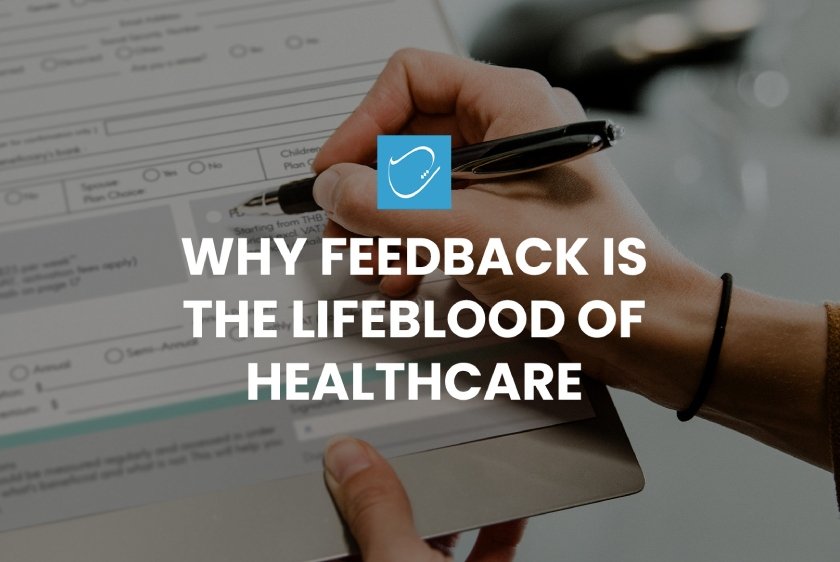Why Feedback is the Lifeblood of Healthcare Distribution
In the healthcare sector, feedback is not an ordinary dislike or opinion, it is a very important element that brings about positive change, promotes trust and affects the quality of the service offered. Whether it's the patients, the health providers or the distributors - customer feedback is a definite source that helps to improve the entire healthcare delivery process.
Patients at the Core
1- Enhancing Patient Experience:
Patient interactions with healthcare, from service quality to provider communication, are essential to their satisfaction. According to the Agency for Healthcare Research and Quality (AHRQ), feedback-driven, patient-centered care yields better outcomes, increased treatment adherence, and greater satisfaction. Feedback may highlight areas needing improvement, such as communication, wait times, or assistance levels.
2- Supporting Medical Distributors
Feedback from healthcare professionals helps distributors improve product availability, timely delivery, and supply quality. Swift delivery of the right supplies can positively impact patient outcomes, reinforcing the connection between patient care and distributor efficiency.
3- Improving Quality of Care
Feedback helps healthcare providers assess strengths and address areas needing improvement. The National Institute for Health and Care Excellence (NICE) emphasizes that patient feedback is vital to healthcare quality improvement. Listening to patients helps providers identify gaps in care coordination, treatment, and service delivery.
If feedback consistently reveals delays due to supply chain issues, distributors can proactively address these bottlenecks, strengthening relationships with healthcare providers and benefiting patients.
4- Ensuring Accountability and Building Trust
Acting on feedback ensures improvement and transparency, building trust among patients and partners. Addressing concerns and implementing solutions create a foundation of reliability within the healthcare ecosystem.
5- Strengthening Medical Distributor Reputation
Medical distributors can enhance their reputation as dependable partners by responding to healthcare providers’ concerns regarding product quality and service timelines.
Mechanisms for Collecting Effective Feedback
The value of feedback lies in how it is collected, analyzed, and implemented. Several effective methods are used in healthcare:
1- Surveys and Questionnaires: Surveys and Questionnaires:
Surveys, whether conducted online or on paper, are effective tools for gathering specific feedback about a patient's experience, including the quality of care, communication, and overall satisfaction.
2- Online Reviews and Social Media Feedback:
Online reviews and social media have become crucial sources of feedback. Patients frequently share their experiences on these platforms, providing valuable insights that should be monitored and addressed.
3- Patient Advisory Councils:
These councils, consisting of patients and their families, provide ongoing feedback on healthcare services and policies. For distributors, similar advisory boards with healthcare professionals can offer critical insights for improving services and logistics.
4- Focus Groups:
Focus groups allow for a more in-depth understanding of patient or provider experiences. They promote collaborative problem-solving and can inform significant changes to services or products.
5- Complaint and Feedback Systems:
Establishing a formal system for submitting complaints or suggestions is vital. These platforms should ensure timely responses, promoting accountability and continuous improvement.
The Role of Distributors in Patient Care
The feedback from healthcare providers and hospitals is equally vital for the medical distributor. Quick delivery times, the quality of the product, and logistical efficiency mean a lot towards patient outcomes. Any problem mentioned in the feedback-the delay in delivery or quality product issue-gets resolved with time, smooth operations, and entrenches partnerships with health facilities for the benefit of the patients.
Feedback Enhances Continuous Improvement
Feedback highlights both strengths and opportunities for growth. Whether its patients concern about their care or professionals tackling supply chain challenges, this feedback provides a roadmap for improvement. Distributors who respond promptly to feedback on delivery times or product quality—show their dedication to excellence, fostering trust within the healthcare system.
In the fast-changing healthcare landscape, feedback is an indispensable tool for driving continuous improvement. Whether from patients, healthcare professionals, or distributors, feedback offers valuable insights that enhance patient care, improve logistics, and strengthen partnerships. How has feedback shaped your role in healthcare? Let’s continue the conversation on how we can collaborate to build a more responsive, efficient healthcare system.
